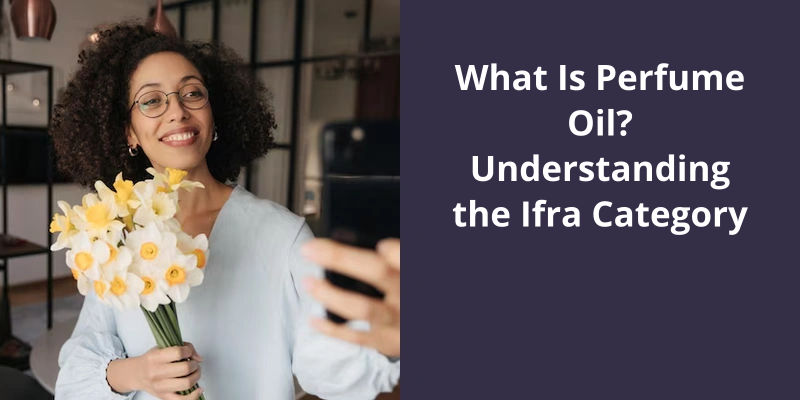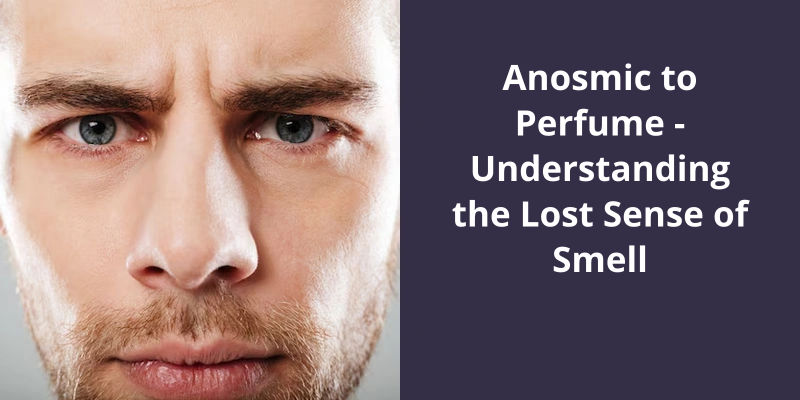Perfume oil is a highly concentrated version of an aroma or scent, typically extracted from natural sources like flowers, plants, spices, or fruits. It can also be derived from synthetic compounds that imitate natural odors. Unlike traditional perfumes which are diluted with alcohol, perfume oils are much purer and can last longer due to their concentrated nature. They are often applied directly to the skin for a more personal scent experience. Because of this concentration, they can be irritating if used improperly and that’s where the International Fragrance Association (IFRA) comes into play. IFRA defines the safe usage rates of various perfume oils in different product categories preventing potential allergic reactions or sensitivities.

What Is IFRA Category 6?
IFRA Category 6 refers to a specific classification system for fragrance materials, used by the International Fragrance Association (IFRA) to regulate the use of chemicals in various products. This system divides materials into different categories depending on their levels of potential skin sensitization, with Category 6 being reserved for substances that pose the most significant risks in terms of irritation and other negative effects.
These guidelines are intended to protect consumers from exposure to potentially harmful substances, while still allowing for the creation of safe, high-quality fragrances.
Under the IFRA classification system, there are many different product categories, each with it’s own set of guidelines and limitations. The latest version of the IFRA standards, known as the 49th Amendment, includes categories such as oral and lip products (Category 6), rinse-off hair products (Category 7A), and many others.
In the case of Category 6 specifically, this classification applies to products with oral and lip exposure, which includes items such as lipsticks, lip balms, and toothpastes. Because of the potential for these products to come into direct contact with mucous membranes and sensitive skin, particular care must be taken when formulating them to ensure that any fragrance materials used are safe and non-irritating.
Other product categories that fall under the IFRA classification system include baby creams, oils, and talcs (Category 5D), which are intended for use on babies delicate skin. Rinse-off hair products applied with some hand contact (Category 7A) are also subject to specific guidelines, as are numerous other product types, such as fine fragrances, detergents, and soaps.
By adhering to these guidelines, fragrance manufacturers can create products that are both effective and safe for widespread use, while still allowing for innovation and creativity in the field of scent design.
Now that we understand the differences between essential oils and fragrance oils, we can delve deeper into the world of perfumes. Many people assume that all perfumes are simply a blend of essential oils, but this isn’t necessarily the case. In fact, the vast majority of fragrances available on the market today are made using synthetic fragrance oils, rather than natural plant extracts. But what does this mean for the scents we wear and how they impact our health and wellbeing? Let’s explore further.
Are Perfumes Just Essential Oils?
Perfumes and essential oils have been used since ancient times for their therapeutic and aromatic properties. Both perfumes and essential oils have unique scents that can evoke feelings of joy, relaxation, or even comfort. However, while essential oils are extracted from plants through steam distillation or cold pressing, fragrance oils are artificial scents that are created in a lab. They’re created by combining synthetic compounds and natural materials to create a pleasing scent.
People have used essential oils for centuries in aromatherapy to improve mood, sleep, and even physical ailments. Essential oils are also used in natural beauty and skincare products and can be applied and inhaled safely.
Perfumes aren’t just essential oils. Additionally, using natural ingredients makes it easier for people to reduce their exposure to synthetic chemicals and harsh fragrances, making essential oils a more sustainable choice in the long run.
Source: Fragrance Oils v Essential Oils in Candles: Which is Better?





